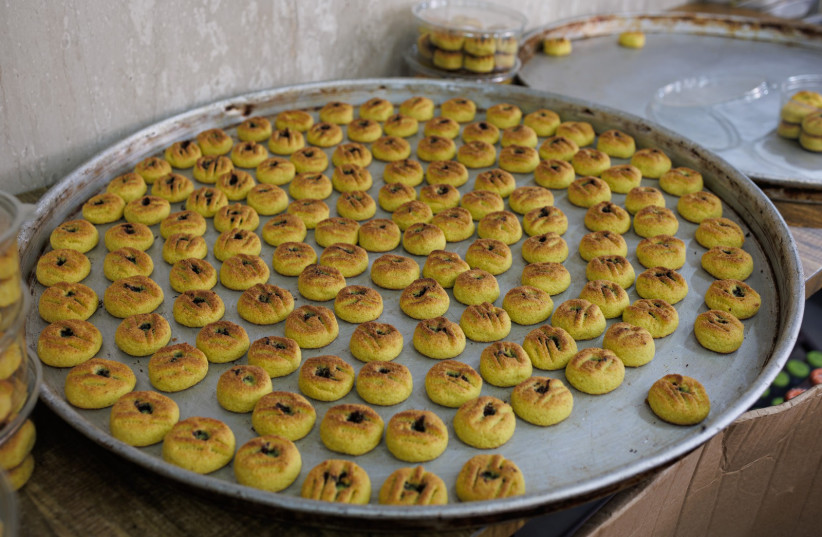Muslims celebrating the Eid al-Fitr holiday that marks the end of Ramadan face an estimated 4% inflation rate in Israel and a 3.62% inflation rate in the Palestinian territories. While this may be lower than in Europe and America, it is impacting communities already experiencing a high cost of living.
Noor Nazme, the owner of Al-Najah Sweets in the Old City of Jerusalem, told The Media Line he is struggling to turn a profit. With 12 years in the business, he is known for his sweets, especially date-filled cookies that are traditionally served during Eid.
Nazme said he has not slept in three days because he needs to make the most of the holiday. People are buying less than in past years, and these few days are crucial.
Nazme broke down the cost of the ingredients he uses in his popular holiday cookies. Everything has gotten more expensive, but the price of cooking oil has increased the most. Under normal circumstances, he purchases 20 kilograms of oil for 90 shekels (almost $27). Today, the same amount of oil goes for 220 shekels.
Nazme said he is trying hard to keep his prices low, but he was forced to raise most by 2 to 3 shekels. Realistically, he needs to increase them by 5 shekels. Nazme is looking into opening a store in the United Arab Emirates to help keep his Jerusalem business alive.

Along with serving sweets for Eid, it is customary to give gifts. Muslims typically dress in new outfits and celebrate the holiday over food. They give gifts or money to loved ones and provide toys, clothes, food and money for those in need. Giving to the poor (zakat) is one of the five pillars of the Muslim faith.
A jewelry store owner who wished to remain unnamed told The Media Line he is struggling with the recent increase in the pillar of the Muslim faith of gold. His store is on Salah ad Din Street, a busy commercial road in East Jerusalem.
Gold used to cost 200 shekels per gram but is now 235 shekels per gram, he said. Business picked up toward the end of Ramadan, but it is still a struggle. Customers are purchasing what they can, but their budgets are yielding less gold than in previous years.
Nabil, who owns a clothing store in the city, told The Media Line that rising costs in Jerusalem deter West Bank buyers who come for Ramadan. His taxes, cost of goods and rent are all higher than those of competitors in the West Bank. Consequently, many people shop in the Palestinian territories, where prices are cheaper.
Nabil said that he used to rely on visitors to the city and foreign tourists during Ramadan. However, fewer people are visiting the Old City, where his shop is located, and those who are visiting have less money to spend.
He is struggling to make his annual rent payment, equivalent to about $2,000 per month, which is due soon. The store owner mentioned that during the last two years of the pandemic, he paid full rent with almost no sales and no government assistance.
Some 27.3% of people in the Palestinian territories lived under the poverty line in 2021, according to the World Bank. The bank also estimated that during 2017-2019, annual gross domestic product growth was 1.3%, lower than the population growth.
Crystal Dunlap is an intern in The Media Line’s Press and Policy Student Program.
